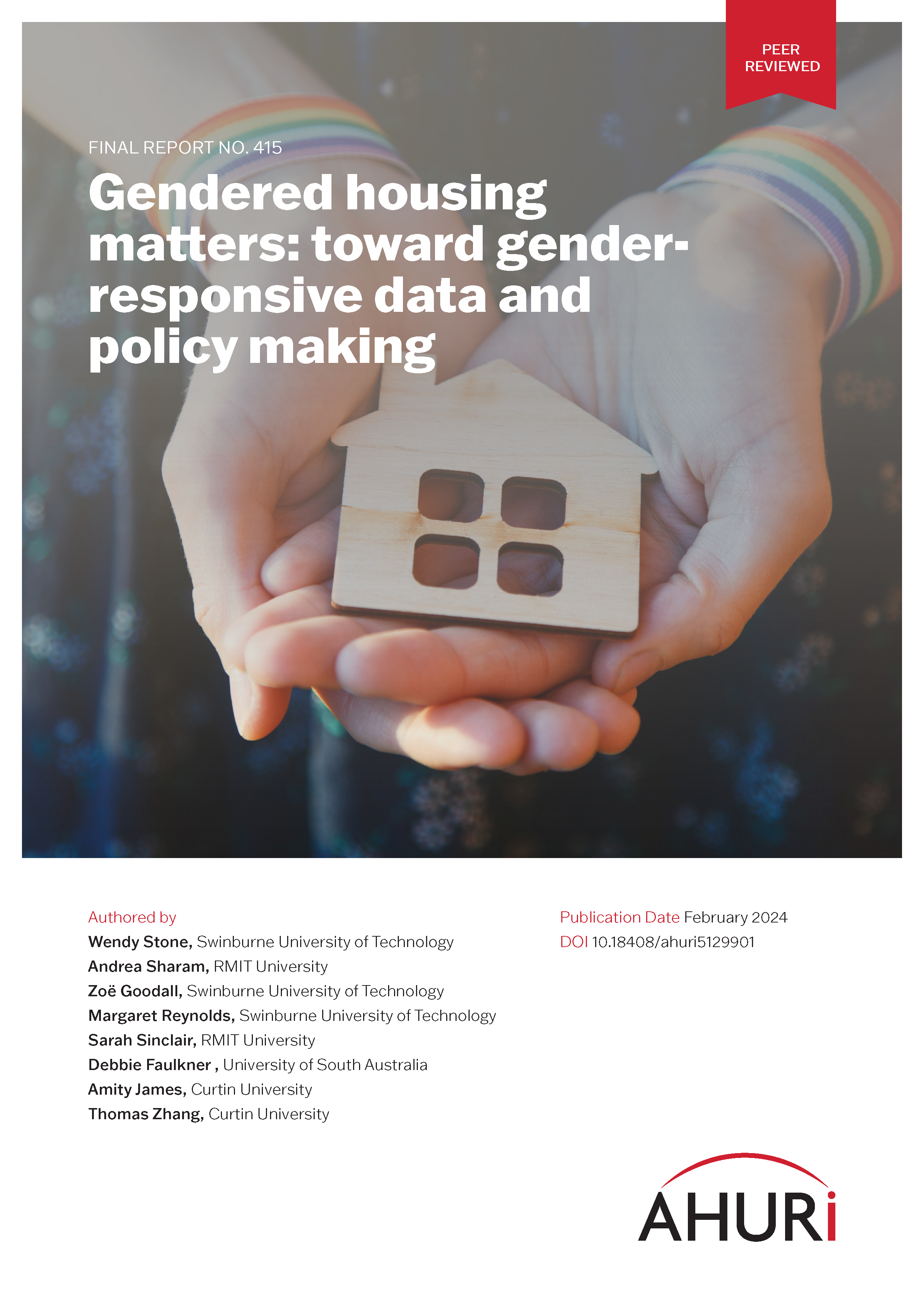
Gender affects people’s housing pathways and outcomes: better data needed
13 Feb 2024
A person’s gender has a real impact on their ability to find safe, affordable housing. New AHURI research highlights that policy makers and support services need to develop secure and accurate data collection and collation practices in order to improve outcomes.
The research, ‘Gendered housing matters: toward gender-responsive data and policy making’, undertaken for AHURI by researchers from Swinburne University of Technology, RMIT University, University of South Australia and Curtin University, explores the impacts of gender in understanding housing and homelessness issues and shows that people’s housing opportunities, pathways, assistance and outcomes are affected by their gender. The impact of gender on housing outcomes becomes even more obvious when combined with cumulative lifetime impacts that can often co-exist for genders – such as critical life events, educational opportunities, family formation and/or relationship dissolution issues.
‘Despite national and international evidence suggesting the lifetime significance of gender as a key in determing a person’s housing outcomes, no comprehensive approach to understanding gender and its role in housing currently exists in Australia or internationally,’ says lead research author, Professor Wendy Stone from Swinburne University of Technology. ‘For instance, while understanding of women’s housing inequalities are growing but limited, less well understood is how gender affects men’s housing outcomes, particularly for single men. And even less well understood are the experiences and inequalities that shape housing outcomes for transgender and non-binary individuals.’
To illustrate the impact of gender on housing outcomes the research analysed aspects of the recent 2021 Australian Census. As an example, it found 7 per cent of all women aged 25 to 34 were lone parents, compared to only one per cent of males aged 25–34. More than half (57%) of the women in this group were living in rental housing, while 26 per cent were in their own purchased home. For men in this age group who were lone parents, half were in rental housing (50%) and 37 per cent were in their own purchased home.
The Census analysis also shows differences in housing tenure for couples based on their gender identity, with opposite-sex partners much more likely to be homeowners or home buyers (75%) than same-sex partners (60% are home owners or home buyers).
To develop the most effective housing and homelessness policies for people of different gender identities, the research identified key areas to be addressed, including:
- understanding the type and scale of needs, and trends to inform policy and programs (including through improved data collection and analysis)
- understanding the extent and experience of inequality
- understanding how other factors (such as low income or poor educational outcomes) combine to drive housing outcomes
- demonstrating to gender diverse and sexual minorities that they are recognised and included as citizens
- providing insights into intra household dynamics – to give visibility to differences between individuals that make up a household
- enabling statistically generalisable findings.
The language used to describe gender identity has changed significantly in a short time, with no clear consensus on which terms are most suitable. The changing nature of the terminology is significant for data collection; it means historical datasets have very limited use in terms of understanding trends and causation. Future standardisation of terms which appropriately reflect individuals’ self-identity will benefit longitudinal studies and policy creation.
‘Our research also highlights that safe, secure data collection and collation are essential as there are significant issues of trust, safety and data security and protection,’ says Professor Stone. ‘It is critical that researchers can provide confidence to participants and end-users that gender-related data will be gathered respectfully, used and stored securely and only accessed for legitimate evidence and policy purposes.’

